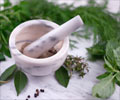Is the age-old belief that cranberry juice prevents urinary tract infection (UTI) true? What does current research say?

Urinary tract infection (UTI), is a pretty common bacterial infection (most often caused by Escherichia coli) that can occur anywhere in the urinary tract – urethra, ureters, bladder or kidneys. It is 10 times more common in women than in men and statistics reveal that more than 50 percent of women get UTI at least once in their lifetime. Being female, being sexually active or using certain types of birth control, menopause, diabetes, and using a catheter to urinate, are all risk factors for UTI.
Although UTI can be successfully treated with a short course of oral antibiotics, the most studied and most effective natural remedy for the infection is the cranberry, in the form of juice, sauce, or dried fruit.
Cranberry Juice and Urinary Tract Infection
Earlier, scientists believed that cranberry juice improved urinary tract health by lowering the pH of the urinary tract and making it more acidic. However, more recent research studies have shown that antioxidants called proanthocyanidins (PAC) present in cranberry prevents E. coli from sticking to the urinary tract walls. And this goes for both, antibiotic-susceptible and antibiotic-resistant E. coli.
The mechanism by which cranberry PACs altered bacterial behavior, however, was not fully understood until Dr. Nathalie Tufenkji and her team from the Department of Chemical Engineering at McGill University in Montreal found that expression of the gene that encodes for the bacteria’s movement was decreased in the presence of cranberry PACs.
“While the effects of cranberry in living organisms remain subject to further study, our findings highlight the role that cranberry consumption might play in the prevention of chronic infections,” Dr. Tufenkji said. “More than 150 million cases of UTI are reported globally each year, and antibiotic treatment remains the standard approach for managing these infections. The current rise of bacterial resistance to antibiotics underscores the importance of developing another approach.”
The most recent research published in the journal Phytotherapy Research confirmed the preventive effect of cranberry on urinary tract infection ‘beyond doubt’.
Cranberry Juice Benefits
Apart from UTI, a few studies also suggest that cranberry PACs can prevent Helicobacter pylori, a bacteria that cause stomach ulcers and sometimes cancer, from sticking to the stomach walls.
Benefits of antimicrobial activities of cranberry extend beyond the urinary tract and stomach. Studies have suggested that cranberries have major cardiovascular benefits, in the sense, they reduce LDL levels and platelet aggregation, maintain HDL levels and improve vascular function.
The same PACs in the cranberry juice that help with UTI also inhibit bacteria from clinging to the teeth, thus preventing tooth decay and cavities.
Interestingly, cranberry juice can help with obesity too. A study on lab mice from the State University of New Jersey, USA, showed that cranberry juice supplementation ameliorated insulin resistance and plasma lipid profile, and reduced visceral fat mass in obese mice.
Cranberry is also beneficial in type 2 diabetes and prostate cancer.
Cranberry Juice Health Risks
Despite all these benefits of cranberry juice, there is a flip side to it as well, as far as UTI is concerned. The National Institutes of Health (NIH) cautions people with personal or family history of kidney stones not to drink cranberry juice or use cranberry tablets.
Although a Cochrane review in 2012 showed that a person had a 14 percent lower risk of UTI if taking cranberry products compared to no treatment or a placebo, several researchers pointed out that it was not a ‘very significant difference’ and could be just chance. Many also pointed out that positive results obtained under laboratory conditions may not have the same outcome in human beings.
Again, according to the European Food Safety Authority – ‘A claim on cranberry fruit products by standardized by their proanthocyanidin content and reduction in the risk of urinary tract infections in women by inhibiting the adhesion of certain bacteria in the urinary tract has been assessed with an unfavorable outcome’.
Further, number of case reports suggested that taking cranberry juice might interact with warfarin (Coumadin). However, other trials refuted the suggestion by saying taking two 8-ounce glass of juice daily doesn’t interfere with the action of warfarin.
Another drawback is that medical fraternity hasn’t come out with equivocal recommendation on how much cranberry juice to take or which product (juice or tablets) is more effective in treating UTI.
Ultimately, even if cranberry doesn’t help you prevent UTI, drinking more fluids including cranberry juice helps flush out bacteria from the urinary tract. But drink it only if it doesn’t interfere with your medications or doesn’t bother your stomach.
Whether or not cranberry prevents or cures UTI, cranberry juice has big health payoffs because of its antioxidant content. So go ahead and have a glass just for the pleasure of enjoying it!
References:
http://www.ncbi.nlm.nih.gov/pmc/articles/PMC3189911/
http://www.ncbi.nlm.nih.gov/pubmed/23922238
Source-Medindia














